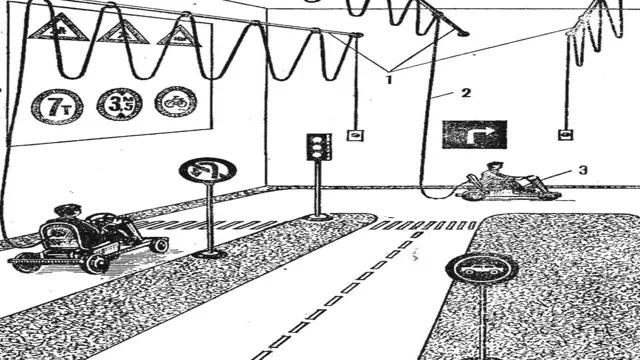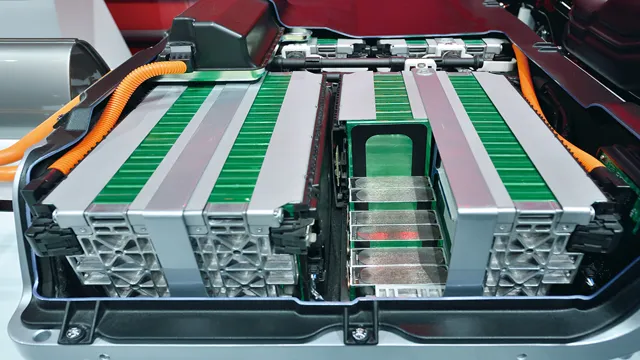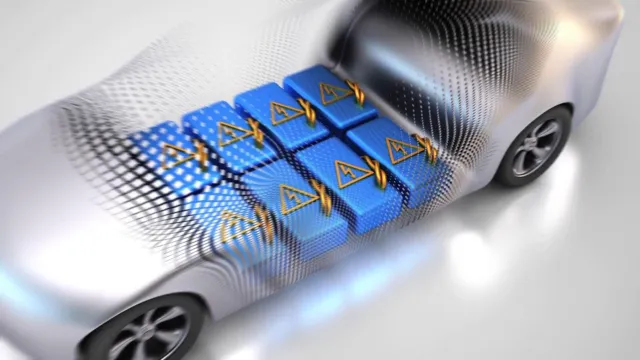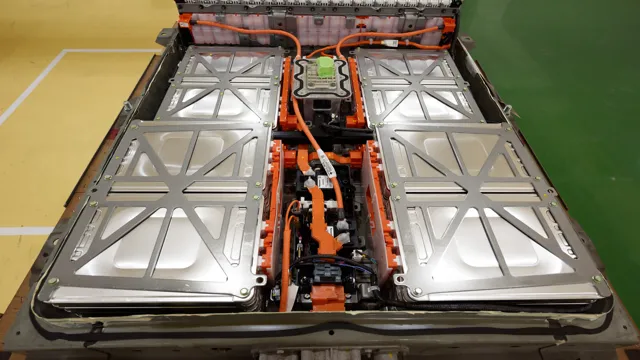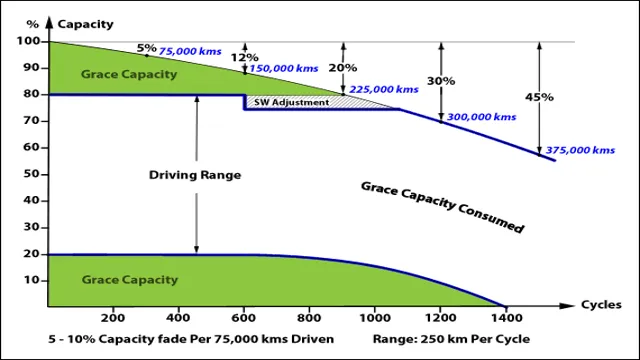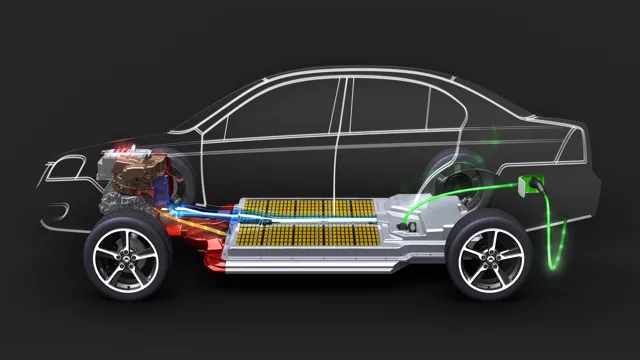Demystifying the Truth: Debunking the Misconception of Hazardous Waste from Electric Car Batteries
As the world shifts towards electric vehicles, concerns rise over the impact these vehicles may have on the environment. Electric car batteries contain a mix of valuable metals and chemicals, and while they are generally designed to be long-lasting, the question of what to do with them when they reach the end of their life remains. Are electric car batteries hazardous waste? This question continues to spark debates among consumers, manufacturers, and regulators alike.
In this blog post, we will dive deeper into the topic of electric car batteries, exploring the components that make up these batteries, the potential environmental impact of discarded batteries, and what actions are being taken to ensure responsible disposal of these power sources.
What Are Electric Car Batteries Made Of?
Electric car batteries are typically made up of a combination of lithium, nickel, cobalt, and manganese. These elements are all considered hazardous and toxic waste, which can pose a potential threat to human health and the environment if not disposed of properly. Additionally, electric car batteries also contain a complex array of chemicals and metals, such as copper and aluminum, that require specialized recycling processes to extract and reuse.
While the production and disposal of electric car batteries can certainly have an environmental impact, the long-term benefits of reduced greenhouse gas emissions and the transition to renewable energy sources often outweigh these concerns. It’s important, however, for manufacturers and consumers alike to understand the implications of electric car battery production and disposal, and to take measures to minimize their impact on our planet.
Lithium-ion batteries
Electric car batteries are primarily made of lithium-ion cells, which are known for their high energy density, longer lifespan, and quick charging capabilities. The cells consist of an anode, a cathode, and an electrolyte, which work together to store and release electrical energy. The anode is typically made of graphite, while the cathode can be made from different materials such as lithium cobalt oxide, lithium manganese oxide, or lithium iron phosphate.
The electrolyte, which allows ions to move between the anode and cathode, is usually a liquid or gel containing lithium salts. Electric car batteries can contain thousands of these cells, arranged in modules and packs to provide the required voltage and power output. As technology continues to improve, electric car batteries are becoming even more efficient, providing longer ranges, faster charging times, and better overall performance.
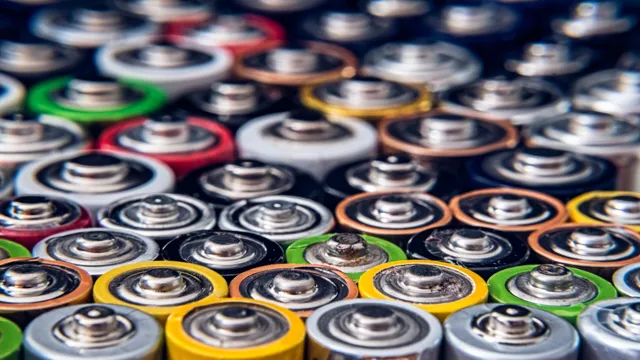
Other battery materials
Electric car batteries are typically made of lithium-ion cells, but there are other battery materials that can be used as well. For instance, nickel-metal hydride (NiMH) batteries were commonly used in early hybrid electric vehicles. However, they have largely been replaced by lithium-ion batteries due to their higher energy density and lighter weight.
Additionally, there are experimental battery technologies being researched such as solid-state batteries, which are expected to be safer and more efficient than current lithium-ion batteries. Other battery materials being explored include lithium-sulfur, zinc-air, and sodium-ion batteries. Each of these materials has its own unique advantages and disadvantages, but they all share the goal of creating better, more efficient electric car batteries.
As technology continues to advance, it’s likely that we’ll see new battery materials emerging that will further improve the performance and sustainability of electric vehicles.
Are Electric Car Batteries Hazardous?
As more people consider transitioning from traditional gas-powered vehicles to electric cars, one of the common questions that come up is whether or not electric car batteries are hazardous waste. The short answer is no. Unlike traditional car batteries that contain lead and other harmful chemicals, electric car batteries use materials like lithium-ion.
These batteries are recyclable and safe for disposal. However, while the batteries themselves may not be hazardous, their production and disposal can have negative environmental impacts. For example, the process of mining and processing the materials used in electric car batteries can contribute to deforestation, water pollution, and displacement of communities.
Additionally, when electric car batteries reach the end of their lifespan, they must undergo a complex process to remove and recycle their materials. Overall, while electric car batteries themselves are not hazardous, it’s important to consider the broader environmental impact of their production and disposal.
Potential health and environmental risks
Electric car batteries have been touted as a cleaner and more efficient alternative to traditional fossil fuel-powered vehicles. However, there are concerns about the potential health and environmental risks associated with these batteries. Most electric car batteries contain hazardous materials such as lithium, cobalt, and nickel, which can be harmful if not properly disposed of.
If these batteries end up in landfills, they can release toxins into the environment and harm wildlife. Additionally, the production of electric car batteries requires a significant amount of energy and resources, leading to increased carbon emissions and environmental degradation. Despite these risks, electric car manufacturers are working to develop more sustainable and environmentally friendly battery options, such as solid-state batteries made from non-toxic materials.
As consumers, it is important to continue advocating for cleaner and safer technology that benefits both ourselves and the planet.
Safety and disposal regulations
As the world looks to move away from fossil fuels, electric cars are becoming increasingly popular. While these vehicles offer a host of benefits, one question that often comes up is whether the batteries used in electric cars are hazardous. The short answer is yes, they can be.
Electric car batteries usually contain a variety of materials that are considered hazardous, such as lithium, nickel, and cobalt. However, the good news is that modern recycling processes have made it possible to recover many of these materials safely. Additionally, many car manufacturers are designing their batteries with recycling in mind, making it easier to dispose of them responsibly and efficiently.
So while electric car batteries can be hazardous, they can also be recycled and reused, making them a more environmentally friendly choice in the long run.
Comparison to traditional car batteries
When it comes to comparing electric car batteries to traditional car batteries, there are a few key differences to consider. One of the biggest concerns people have is whether or not electric car batteries are hazardous. While all car batteries contain some level of toxic chemicals, electric car batteries tend to be less hazardous overall.
This is because they are designed to be more efficient and have better energy density, which means they use fewer materials and chemicals. Additionally, electric car batteries are often designed with safety features like thermal management systems and advanced controls to prevent fires and other accidents. So, while electric car batteries are not completely hazard-free, they are generally considered to be safer and more eco-friendly than traditional car batteries.
How Are Electric Car Batteries Recycled?
Electric car batteries are not considered hazardous waste but they do require special handling and recycling procedures. The lithium-ion batteries commonly used in electric vehicles contain toxic and flammable chemicals that can pose a risk to the environment if not disposed of properly. Additionally, the battery cells themselves are valuable resources that can be recycled and repurposed.
Recycling of electric car batteries involves a multi-step process that typically begins with the removal of the electrolyte solution, which can be dangerous if mishandled. The battery is then disassembled, and the individual components, including the cathode and anode, are processed separately. The cathode typically contains valuable metals such as cobalt, nickel, and lithium that can be extracted and reused in new battery production.
Overall, recycling electric car batteries requires specialized knowledge and resources to ensure the safe and efficient processing of these valuable but potentially hazardous materials.
Battery recycling process
Electric car batteries are recyclable, and once they reach the end of their useful life, they can be dismantled and their components reused. The process involves breaking down the battery into its various parts, such as the cathode, anode, and electrolyte, and then extracting the valuable metals like cobalt, nickel, and lithium. The first step is to discharge the battery to prevent any residual electrical charge from causing a short circuit during the recycling process.
Then, the battery is dismantled, and the various components are separated using a combination of mechanical and chemical processes. The extracted metals are then purified and refined, and sent on to manufacturers to make new batteries or other products. The recycling process not only helps to reduce the environmental impact of producing new batteries but also helps to conserve valuable natural resources, making it a win-win situation for everyone.
Potential benefits of recycling
Electric car batteries are designed to be recycled, with the potential to create a closed loop of raw materials. The process of recycling an electric car battery involves breaking the battery down into its component parts, which can then be reused in other batteries or for other purposes. One of the main benefits of recycling electric car batteries is that it helps to reduce the demand for new raw materials to manufacture new batteries.
This not only saves valuable natural resources but also reduces the carbon footprint associated with mining and refining new materials. Additionally, recycling ensures that hazardous materials are disposed of in an environmentally responsible manner, reducing pollution and minimizing the risk of environmental damage. By recycling electric car batteries, we can help to create a more sustainable future for ourselves and future generations.
Conclusion
To answer the question “Are electric car batteries hazardous waste?” one must first consider the environmental impact of traditional gas-powered cars and the urgency of finding sustainable alternatives. While electric car batteries do contain some hazardous materials, including lithium and cobalt, advancements in technology and recycling processes are ensuring that these materials are being responsibly sourced and reused. One could argue that the real hazard lies in our reliance on fossil fuels and their detrimental effects on our planet.
So let us embrace the electric car revolution and charge forward towards a greener future, battery and worry-free!”
FAQs
What makes electric car batteries hazardous waste?
Electric car batteries contain toxic and hazardous chemicals such as lead, cadmium, and lithium. If not disposed of properly, these chemicals can potentially harm the environment and human health.
How should electric car batteries be disposed of?
Electric car batteries should be recycled or disposed of at a certified recycling facility that specializes in handling hazardous waste. Many car manufacturers offer battery take-back programs to ensure proper disposal.
Is it safe to handle electric car batteries?
No, it is not safe to handle electric car batteries without proper training and equipment. The chemicals inside these batteries can be harmful if they come into contact with skin or eyes, and can cause fires or explosions if mishandled.
Are there any alternatives to using electric car batteries?
While electric car batteries are currently the most practical option for powering electric vehicles, there is ongoing research and development into alternative energy storage solutions such as hydrogen fuel cells.

